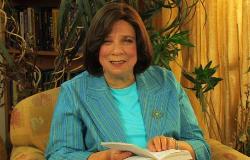
Dear friends,
I know my friend Shifra Slater from the Old Days when I lived in Maalot Dafna. I watched her kids grow up from afar. One of the daughter’s in law is Dr. Slater, a psychologist with a practice here in Yerushalaim.
Except when she makes Shabbos food for 2000.
No, it’s not a typo. She flew to Ukraine as a volunteer with Hatzalah. The situation this past week was so extreme, that she (together with the other Hatzalah personnel) were peeling potatoes. Choice two was letting literally thousands of people face Shabbos hungry.
There are two questions that are real at times like this. The first is “What does this mean?” and the second is “What can I do?”
1-WHAT YOU CAN DO
The real and brutal reality that face the Jews in the Ukraine and in the places in which they have taken refuge is there for you to see when you look online. Listen to what Rabbis Bleich, Krohn, HATZALAH and many many others say. Do what you can to see that they are cared for materially the way you would want people who are safe and warm to care for you if you were in their shoes. You may have given what you can and more. There is a time when you can say, “I did what I could”. This is true with money-your capacity may be limited.
2-WHAT YOU CAN DO WITH NO EXCEPTIONS
It’s not true with tefillah.
The purpose of this letter is for us to all take on saying at least two prakim of tehillim a day (PERHAPS 20 AND 130) and follow it with Ana bikoach. This is not my original suggestion. It was made by someone whose hand is on the pulse, Anya Yablonsaka (her name is not different-she married, and I will try to get you the correct last name for next letter). She is Russian and has been involved directly in teaching and every form of kiruv for years.
Can you say no?
FIGURING IT OUT
Years ago a tragic event took place. The place isn’t important for our story, but if I am not mistaken it took place in China. A crack in a dam opened into a stream and from there to a surging flow of unstoppable water. The end of the story was hundreds of deaths and thousands of people injured (and unknown amounts of property damage) Someone asked the Chofetz Chaim what he should understand from the immense tragedy. He told him that when terrible events happen in the non-Jewish world, you should have realized that the Jews are being given a message. He asked what on earth he could learn from the Chinese tragedy. The Chofetz Chaim replied by asking him a question. “How many people live in Warsaw?” The story happened so long ago, that the answer was “300,00 people”. The Chofetz Chaim then said, “If they needed to be told that they must make major changes in the way they live their lives, you wouldn’t be able to preach to them even if you wanted to. You don’t speak their language. When Hashem sees that there are moral challenges that are not being met, he speaks to the only people who can understand His language, the Jews. He speaks” in many ways to many people, but it is the Jews who are being addressed.
What you see today is that two countries are engaged in mutual destruction. Putin doesn’t need Ukraine in the objective sense- he rules a huge nation blessed with natural resources. The entire war is unnecessary and tragic.
Are all of the conflicts in our communities really necessary? Is it really beneficial to tear each other apart often on the basis of perceived justifications rather than anything that even resembles a machlokes lishem shamayim (discord for the sake of Heaven). The words we use, the hostility that lies behind them, and worst of all the plague of “othering” people with whom there is genuine basis for seeing as being part of a greatly varied community of Torah Jewry, is the “family” version of what is going on in Ukraine.
Maybe we can do better.
May I urge you to pass this on to as many people as you can.
May we only hear good, and may Purim be a time in which we hear that everything turned over for the good.
Tziporah
